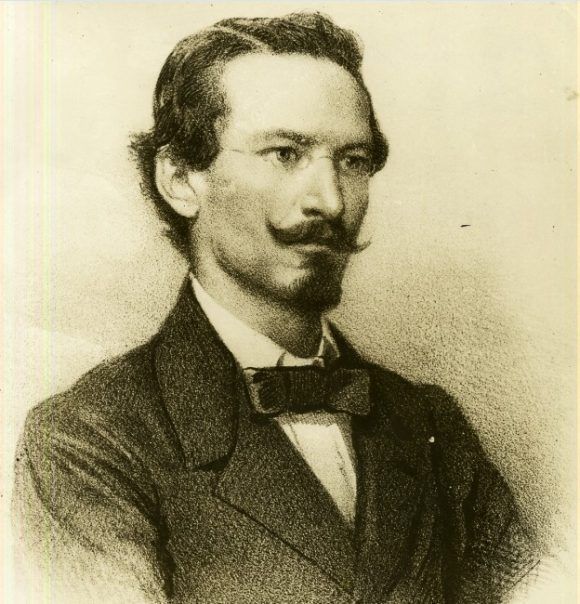A long time, almost two complete centuries, has elapsed since the birth of a writer for whom the qualifications of playwright and poet are applicable and deserved. His name, Joaquín Lorenzo (his first surname) Luaces , is one of those intellectuals who, in the midst of a society with difficult access to knowledge and a colonial system little given to investing in culture, managed to insert himself both among the cultivators of poetry and in that of the makers of the drama genre of the mid-nineteenth century.
If it is about theater, then Luaces left two important works for the scene: the romantic drama El mendigo rojo (1859), and the classic-style tragedy Aristodemo (1867), which is considered the best structured of his dramaturgical works. But he also cultivated comedy and from that genre we will mention The Golden Calf (1859), and A tigre, zorra y bulldog (1863), in which the influence of Molière is perceived .
Of the lyrical poet, which also deserves comment, it is worth noting what the Spaniard Ramón Menéndez Pidal wrote , one of the authorities of literary criticism in the Peninsula:
Luaces very robust versatile, and in love too much with the pomp and rotundity of the poetic period, he usually abuses his strength and falls into the emphatic and declamatory (...) but the power of his fantasy is great and the push with which he runs in his rooms is irresistible. the stream of the sonorous word, overcoming all the dodges and objections of taste.
Menéndez Pidal was so impressed by Luaces that in 1893 he proclaimed him "the third in merit among the island's poets," preceded by Gertrudis Gómez de Avellaneda and José María Heredia . The judgment, perhaps disproportionate, is taken as an indicator of the importance of his work in the Cuban literary endeavor of the 19th century.
Born in Havana, and according to the Dictionary of Cuban Literature of the Institute of Literature and Linguistics, on June 4, 1826 - he made the accounts for himself: 195 years ago -, he studied Latinity at the Colegio Calasancio de Puerto Príncipe (Camagüey ), where his brother Agustín lived. Later he continued his apprenticeship in Havana, graduating with a bachelor's degree in Jurisprudence in the capital.
Concurrent to the gatherings of Don Felipe Poey , there he read his verses, one of which was published in the weekly newspaper The Artist, with which it became known in print. He was a close friend of the Bayamian poet José Fornaris , with whom he edited the weekly La Piragua, spokesman for the literary movement known as siboneyismo due to its frequent reference to the aboriginal theme. Also with Fornaris he prepared the Cuba poetic anthology (1858), a compilation of what they considered the most important compositions up to that date.
Luaces' poetry revealed various tendencies: one was moralizing, which certainly does not represent the best of his creation. He also wrote several of elegant erotic lyricism and did not put aside the theme of freedom, although he died before the start of the Ten Years War , so he did not live the experience of independence.
We allow ourselves to reproduce an entire sonnet, entitled "La pesca" , so that the reader can appreciate the poet for himself:
A stream runs through the muddy bank without bellowing viciously;
the flexible reed fills its bed,
the fragrant rose embroiders its shore.
Like no other, my beautiful guajira,
on a rock that the lymph bathes
against the fish with fury,
the ready hand reigns, the anxious look.
He finally jumps joyfully and deliriously,
the rope pulls with extreme alacrity,
satisfying believing his traitorous longing.
And when he went to cast the shiny fish
that flapped in the noisy foam he
found my heart on the hook.
Luaces was also a translator. His death, on November 7, 1867, deprived him of the satisfaction of collecting the award that the Liceo de La Habana awarded him for his ode "El trabajo" .


Deje un comentario